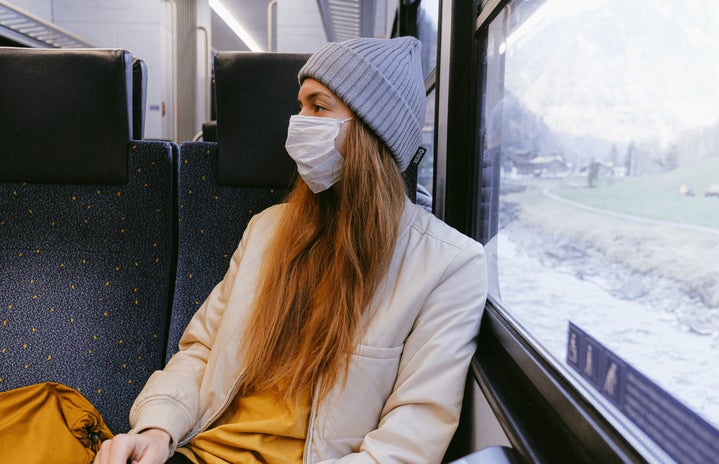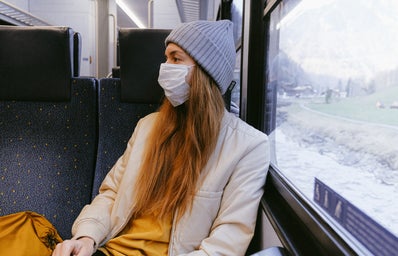Last March, I was finishing up my graduate degree in Secondary Education and counting down the days until the semester let out. My thoughts were consumed by the status of my thesis, and anxiety over my cross-country move. Nothing could have properly prepared me for returning to Phoenix on the verge of a national shutdown and amid the panic of a pandemic.
My roommate and I stared at one another late that night, huddled up in my room, unsure of what lay ahead of us. Up until that point, everything in my life had been a blur of linear, planned events. I hadn’t factored in the role chance played in my future. Suddenly, it felt like the dice had rolled and fate had decided for me. Graduating without fanfare or celebration was sad, but it was the goodbyes that hurt the most. Leaving Arizona, I didn’t get to see most of my friends one last time before I left.

We parted our ways and retreated to our respective corners of the United States. I kept searching for an answer for why an essential part of my twenties was taken from me, and replaced by a looming emptiness stirred by isolation. I tried to recall what was supposed to happen when I’d landed back in March, and how joyous everything was supposed to be. I was stuck on the supposed to be; after all, it was the better, happier version of my reality.
All of things I missed are still strung up in my imagination: exuberant laughter, loud music, loved ones’ embraces, Netflix marathons with friends, Sunday brunch outdoors, lemonade under the sun, passing smiles from strangers, pool parties, dogs running through the grass, midnight Ubers, coffee confessionals, winter festivals, snowmen building competitions, cookie contests and so much more.
But what’s truly lost isn’t the supposed to be at all.
That’s supplied by the physical world: what I can see or feel, if only through the television screen at night. Coming home and seeing my mother, a nurse practitioner working with COVID patients, made me begin to grasp the weight of the virus. The death count has reached 354,000 and 1163 in my county alone. To put that in perspective, that is 1163 next-door neighbors I’ll never see again.
Headlines were made December 11th when the CDC Director Robert Redfield explained COVID-19 will kill more Americans daily than victims of 9/11. The gruesome national tragedy I grew up watching seems magnified now in my collective memories. The trauma of that day has become the new everyday, and coverage of the virus is a chilling reminder of the inequalities that pervade our communities and health care systems. The fact is that while certain people get excellent care, others can only dream of it.
I cried watching the news last week. Hearing the stories of those who fought for their lives has shown me the immense privilege of being able to stay home, and the safety I’ve taken for granted too long. It’s a stark lesson that there are millions of people in America that must prioritize surviving over thriving. This year has revealed the scope of my privilege and how it’s affected my life in times of hardship. It’s also taught me the rights I feel entitled to are not extended towards the masses, as human rights often become fodder for political antics and power plays rather than realities.
Simply put, I would argue everyone should have access to healthcare, food, shelter, education, and an opportunity to have a better life.
Yet, through all the chaos and pandemonium of this year, I hold on to an inclining of hope not in spite of my beliefs, but because of them. My hope rests with the hunger I mentioned before, and the belief that the year 2020 will spur change to end the inequalities that existed long before anyone knew what COVID-19 was.
Even after nearly a year, and arguably the worst year in American history of my short life, I’ve come to understand that time is precious, but so are people. They’re the supposed to be. And those that fought for their lives against a nasty virus will always be more important than any part of my twenties.


